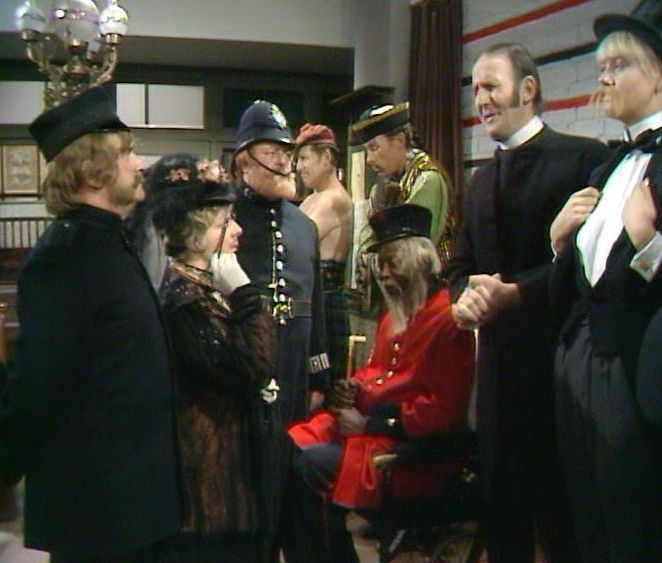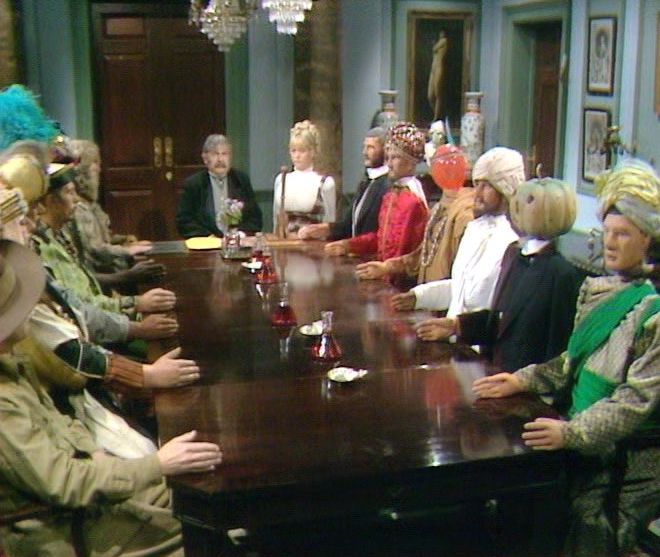
1937: The Removals Person, the first episode of Six Dates With Barker, was broadcast on ITV in 1971.
Although Six Dates With Barker doesn’t look to have been set up as a breeding ground for subsequent television series or film projects, three episodes did go on to have a life outside the series.
Spike Milligan’s The Phantom Raspberry Blower of Old London Town was revised and expanded for The Two Ronnies, The Odd Job by Bernard McKenna was developed into a film (with David Jason reprising his role and Graham Chapman replacing Ronnie Barker) and The Removals Person by Hugh Leonard was rehashed in 1988 by Ronnie Barker as Clarence.

A Land Fit for Heroes and Idiots, the first episode of When The Boat Comes In, was broadcast on BBC1 in 1976.
Created by James Mitchell (and as far removed from Callan as you could imagine) When The Boat Comes In is one of those period programmes that’s aged very well. Possibly series four (which aired in 1981, some three years after the series had apparently come to a conclusion) doesn’t quite match the earlier runs, but overall my impression is that it was always pretty consistent. Another one that I think I’ll add to the 2022 rewatch pile.

Horse Sense, the first episode of All Creatures Great and Small, was broadcast on BBC1 in 1978.
Perfect Sunday evening viewing (even though it began on Saturdays) this first television incarnation of All Creatures was as well cast as you could have possibly hoped for. It’s been a while since I’ve seen them all, so I’m tempted to consider a rewatch – although considering it’s only the 7th of January and I’ve already got a tottering rewatch pile, maybe I’ll hold off for a while ….

Hail the Conquering Hero, the first episode of Shine On Harvey Moon, was broadcast on ITV in 1982.
Something of a neglected gem, Shine On Harvey Moon was a series which featured a fine ensemble cast headed by Kenneth Cranham as Harvey. Nicky Henson made a decent fist of the role when he replaced Cranham in the 1990’s revival, but he never displayed the same sparkle that Cranham always had.
The immediate post WW2 setting is an interesting one – a Britain of shortages and economies provides plenty of scope for both drama and comedy. In some ways this opening episode has a feel of When The Boat Comes In‘s debut, albeit with a much lighter tone.
It’s a pity that the DVD release of the early series was very comprised – originally airing in 25 minute episodes, they were re-edited into 50 minute form for the DVD release (losing large chunks of various episodes along the way).
A decent DVD re-release or another television rescreening (it turned up on the Yesterday channel a while back) would be very welcome.

The Adventure of the Clapham Cook, the first episode of Agatha Christie’s Poirot, was broadcast on ITV in 1989.
It’s a funny thing, but back in 1989 I was impatient for the series to start tackling the novels and found these early adaptations of the short stories rather flimsy. Thirty years on, my opinion’s totally switched around (mainly because some of the tv versions of key novels – The Murder of Roger Ackroyd with the chase ending, say – rather tried my patience).
Many of the stories adapted for the first few series were originally published in the 1920’s in magazine form and were fairly brisk in terms of word count. That means that the adaptors have plenty of room to add incidental colour (mostly this works pretty well).
David Suchet is, of course, excellent as Poirot. In 1989 he might have been a little too young (and a little too slim, even with padding) but in all other respects he had the character of the little Belgian dandy nailed right from the start.














